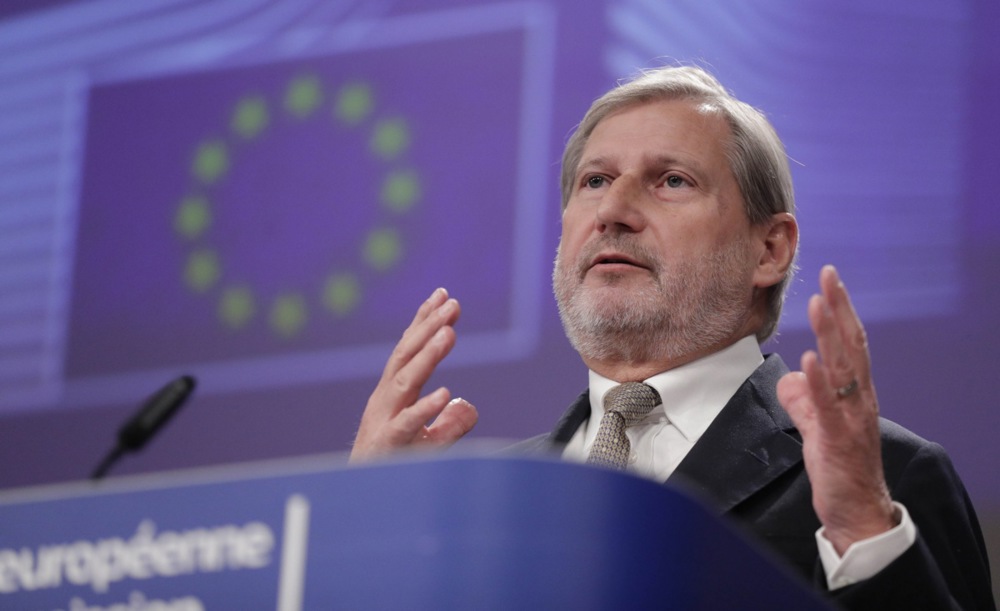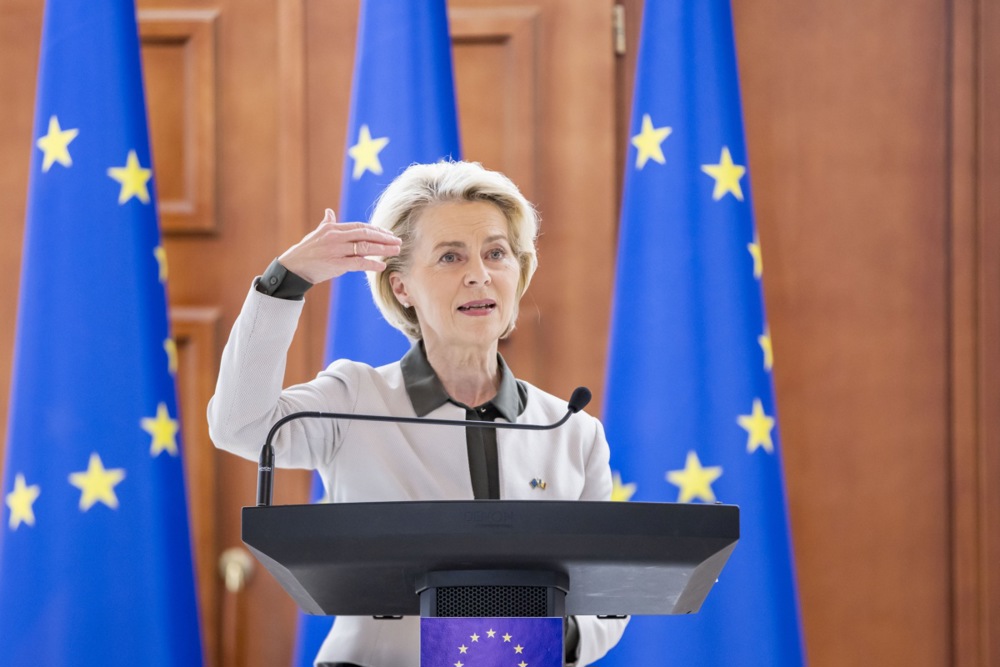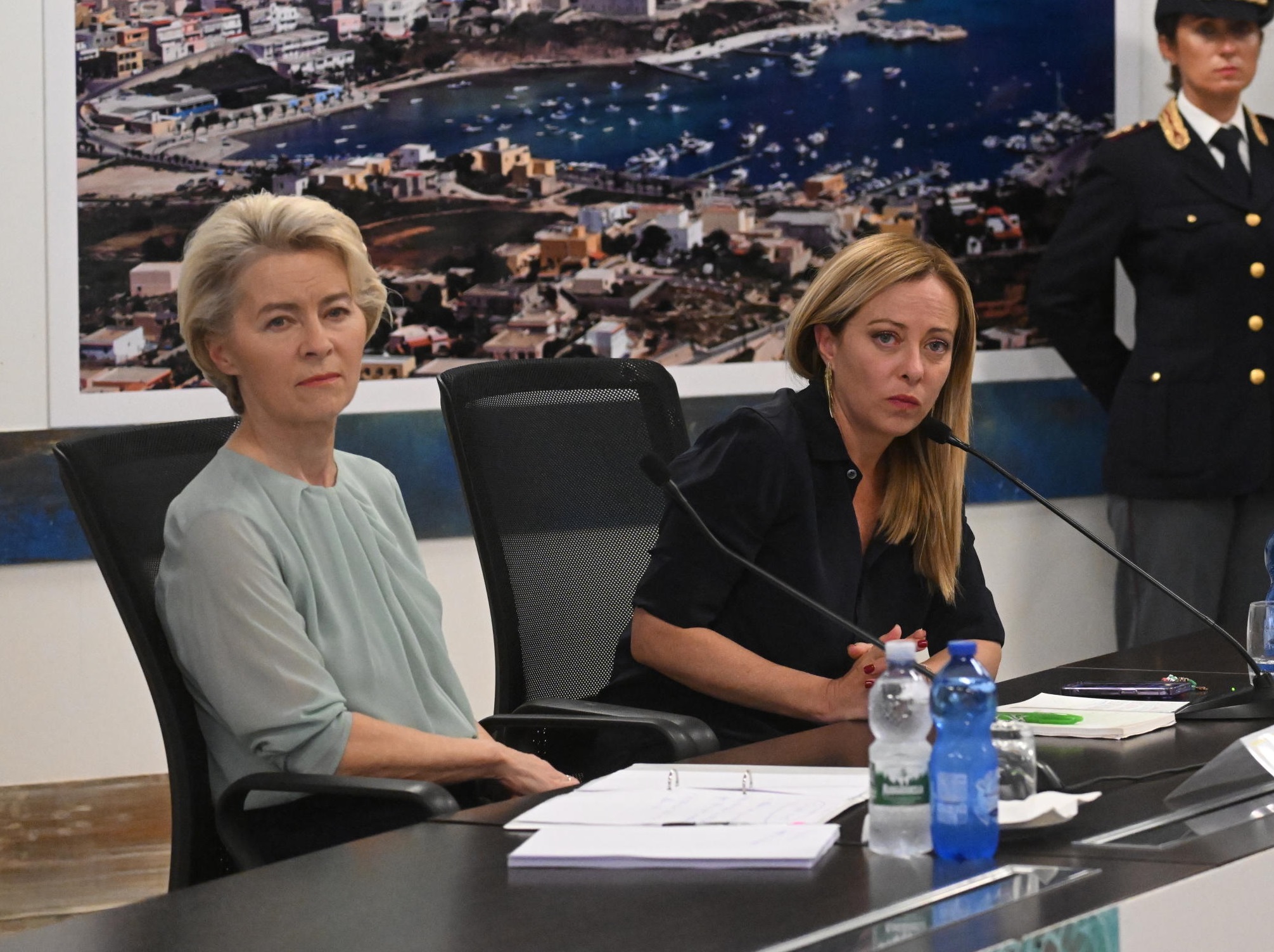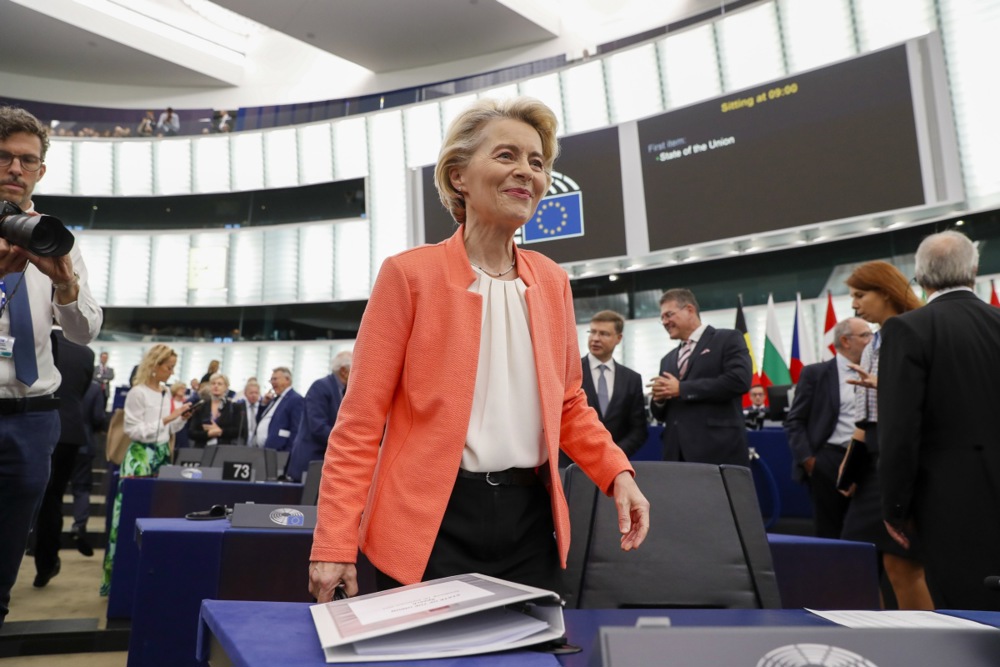The European Commission has defended its decision to extend its own communications budget to €60 million, much to the dismay of MEPs.
Politicians from both the Left and Right of the European Parliament have expressed anger at the move, especially since the EC appears to be reducing spending in other areas.
Justifying the decision, EC President Ursula von der Leyen claimed the increase was part of Brussels’ attempts at “pooling funds” from different budgets.
“Various EU funding programmes contribute to corporate communication, partly from the communication budget lines of those programmes, and not their operational budget – thus not affecting their implementation on the ground,” she claimed.
Von der Leyen added that such attempts at pooling communications money would, somehow, “strengthen the ownership of contributing EU programmes”. She did not elaborate on what she meant by that.
The European Union will triple the amount of aid it is sending to Gaza, European Commission President Ursula von der Leyen has announced. https://t.co/PSOY1ZJLOO
— Brussels Signal (@brusselssignal) October 16, 2023
Although claiming the increase represented an effort to combine resources from different EU projects, she did not deny that the EC’s communications budget was being hiked.
EC representatives had previously justified the rise by stressing the importance of propaganda backing the EU’s “democratic institutions” at a time of rising conflict worldwide.
Von der Leyen stressed that the current budget for the EC was very small, costing each EU citizen about 7 cents per year.
“Thanks to its EU-branded corporate communication campaigns, the Commission can reach out to broad sections of society on topics that people care about the most,” she said, praising the EC’s PR machine.
“The funds are used to develop high-level European communication campaigns supporting EU political priorities, with the objective of informing EU citizens on how the EU delivers on its commitments and makes Europe a better place to live.
“Reaching out to a large part of society means placing EU campaigns on broadcast media, on billboards on streets and in public places, in newspapers and magazines, as well as online,” Von der Leyen went on to say.
The European Commission has told European Union Member States to “fast track” the bloc’s online censorship powers under the Digital Services Act. https://t.co/TH44KNai7J
— Brussels Signal (@brusselssignal) October 19, 2023
MEPs do not appear to be anywhere near as enamoured with the EU’s penchant for propaganda.
Writing to the body, European Conservatives and Reformists Group representative MEP Jadwiga Wiśniewska complained that the decision to boost comms spending risked taking resources from other areas.
“In view of the need for EU assistance to help war-torn Ukraine, as well as the ‘putinflation’ caused by the war, these plans are ill-advised,” she said.
Dimitrios Papadimoulis, an MEP for The Left, accused Von der Leyen of giving the communications department a budget increase at the same time as she was effectively reducing EU spending overall.
“The draft budget put forward by the Commission for 2024 amounts to just 1.07 per cent of the EU’s GNI [gross national income] – which essentially means funding cuts in a context of high inflation,” he said.
“How does [the EC] justify increasing communication funding by taking away financial resources from important programmes and funds with important missions, thereby weakening them?”
The European Commission’s decision to unilaterally announce the end of European Union aid to Palestine risked “undermining the democratic process”, an MEP with links to the Irish Government has said. https://t.co/jCZi7rivc9
— Brussels Signal (@brusselssignal) October 12, 2023





